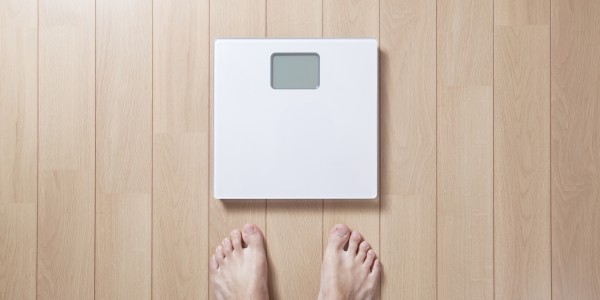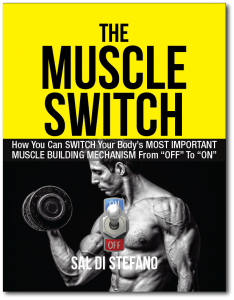When thinking about getting leaner or losing body fat, the first thing most people think of is diet and exercise, and for good reason. Excess calories and inactivity are the two biggest factors that keep people from realizing their weight loss goals and this fact has largely become common knowledge.
A smaller but growing percentage of people also realize that it is not just the number of calories but the kind of calories they eat that impacts their ability to become lean and stay lean. In other words, 100 calories of cake affects your body’s metabolism differently than 100 calories of chicken.
There is yet another factor critical to fat loss and staying lean that almost NO ONE understands and that is how GUT HEALTH impacts their fat loss and athletic performance.
The health of your gut has a MAJOR impact on your overall health, immunity, mood, athletic performance and especially your ability to lose weight.
So what is gut health?
First off, when I refer to “the gut” I am not talking about a big belly that hangs over someone’s belt. What I am referring to is what is INSIDE your belly.
The gut includes your mouth, esophagus, stomach, small intestine and large intestine. In this post we will be focusing on the stomach and the small and large intestines.
When your gut is healthy it means you are able to eat a healthy diet without symptoms of abdominal pain, heartburn, severe bloating or blockages. You are able to digest and absorb 95-99% of the nutrients you consume, have regular soft bowel movements and your gut is populated with right amount of beneficial flora and bacteria.
When your gut is unhealthy you can suffer from obvious gastrointestinal problems like constipation and/or irregular bowel movements, HOWEVER, poor gut health is not always so obvious.
Here are three common but less understood effects of an unhealthy gut:
- Depressed mood from the reduction in dopamine and serotonin (the gut is referred to as “the second brain” as it is the second largest holder of receptors of the feel good chemical serotonin only behind the brain). When your serotonin is low you feel it in your brain AND in your gut. This could possibly be why falling in love gives us butterflies or why depression has an incredible effect on how our stomach feels.
- Chronic (Systemic) inflammation, which contributes to everything from allergies to autoimmune disorders to joint pain
- Reduced nutrient absorption
Let’s focus now on how these can affect your fat burning goals.
Lets start with serotonin…
Low levels of serotonin are well known to increase cravings for the foods that give us a short-term boost in dopamine and serotonin, namely processed carbohydrates and sugars. If your dopamine and serotonin levels are off, you are far more likely to eat these foods, sabotaging your fitness goals in the process.
Eating processed carbohydrates and sugars give you a bump in these “feel good chemicals” but this bump is short-lived. This is why sugar is so damn addicting. You eat some sugar to satisfy your cravings, your dopamine and serotonin levels increase, but soon afterwards they dip and you begin experiencing another, often progressively worse, craving. This accounts for why eliminating sugar from the diet usually results in a withdrawal period. When you cut out sugar your brain is producing less of those feel good chemicals which leaves you feeling like something is missing. The good news is these feelings will subside as your body normalizes. In fact, people will often remark how they no longer crave sugars or how fruits and foods that naturally contain some sugar all of a sudden taste so much sweeter.
Next let’s talk about chronic or systemic inflammation.
Inflammation itself is a natural immune system response. For example, when you catch a cold or sprain an ankle your body’s immune system goes into action to repair and recover. Heat, pain, redness and swelling are all inflammatory responses designed to start the healing process. As your body heals, anti-inflammatory compounds then act to neutralize the inflammatory response, bringing your body back into balance.
In cases where inflammation does not subside it is an indication that your immune system is stuck on high alert. This is known as chronic inflammation. Over time, this perpetually inflamed state has a very detrimental affect on your body. Chronic inflammation is now linked to heart attacks, diseases like Crohn’s, asthma, osteoarthritis, Alzheimer’s, and even type 2 diabetes.
Two-thirds of your body’s immune defenses reside in your gut and poor gut health is ground zero for chronic inflammation.
So let’s talk about how chronic inflammation affects fat loss.
Your body produces a master weight control hormone called leptin, which is responsible for regulating the amount of fat stored in your body. When you are healthy, leptin acts to keep your weight at an optimal level by adjusting your energy expenditure and by sending a signal to your brain to stop eating when the level of fat in your cells reaches a certain level.
With chronic inflammation, your body produces anti-inflammatory chemicals that interfere with leptin’s function. When the leptin signal is suppressed, your body does not adjust its energy expenditure and your brain does not get the signal that you are full. The result is a sluggish metabolism and overeating which lead to rapid weight gain and makes fat loss feel almost impossible. To make matters worse, the more fat you gain the more inflammation you produce, making your leptin even less effective. It is a vicious cycle.
Finally, lets talk about the “gut flora” that makes up much of your gut. Gut flora refers to the microorganisms and bacteria that naturally live in your gut. It has been found in numerous studies that the gut flora of obese, unhealthy individuals is fundamentally different from those of lean and healthy individuals.
The bacteria in your gut are largely responsible for how nutrients are absorbed and when the balance is not optimal you don’t utilize nutrients nearly as well. This lack of nutrient absorption can easily trigger cravings as the body kicks hunger into high gear searching for more nutrients. This is why a high calorie, low nutrient diet can many times trigger more hunger. The body is receiving the calories but is wondering where the nutrients are.
So how do we eat and supplement our diets to promote a healthy gut? First off, limit or eliminate sugar from your diet. Sugar FEEDS certain unhealthy bacteria and a diet that is high in sugar will cause an overgrowth of these bacteria resulting in sub-optimal gut health. I always recommend my clients limit sugar to their post workout meal…this is when sugar is beneficial as it can assist in the muscle recovery process. Other than post workout, sugar really isn’t good for you at any other time.
Next, make sure to include natural foods containing living beneficial bacteria. Foods that are fermented like plain yogurt, kefir, sauerkraut and kombucha tea are full of healthy bacteria. You can also supplement with a probiotic to bolster and maintain healthy levels of good bacteria. Avoid processed and packaged foods and artificial sweeteners…they have also been shown to contribute to unhealthy gut flora. Certain fats have been shown to have soothing effects in the gut and also contribute to healthy flora. Coconut oil, olive oil and fish oils are good choices. Finally make and consume bone broth soups regularly. They are high in collagen proteins. These proteins help heal the gut because they provide the building blocks for the lining of the gut. I personally have started supplementing with collagen hydrolysate for this very reason and the results are amazing. My gut and digestion feel better than ever.
Make gut health one of your priorities in your diet and reap the benefits of lower levels of inflammation, better production and utilization of the feel good chemicals serotonin and dopamine, better nutrient absorption, MUCH lower cravings and watch how much easier it is to lose body fat. This could possibly be the one factor that is holding you back from your fat loss goals.

